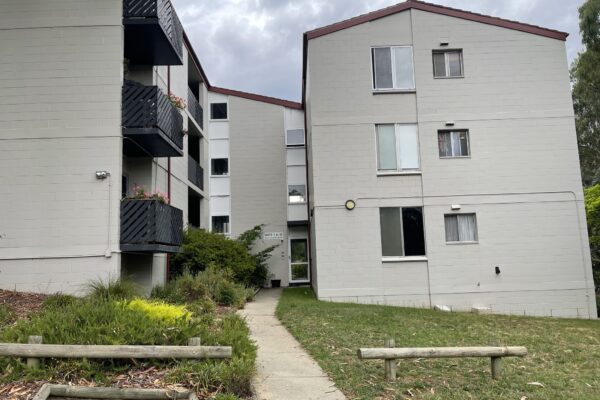As a tenant, you are expected to abide by the law of tenancy after moving into your rented property. Most of these laws are contained in your tenancy agreement, but some are also provided by your jurisdiction.

As a tenant, you are expected to abide by the law of tenancy after moving into your rented property. Most of these laws are contained in your tenancy agreement, but some are also provided by your jurisdiction. It can be a little confusing when faced with a situation where some laws are applicable but you are not sure how to act if you do not understand them. Therefore, before moving in, it is wise to familiarise yourself with the laws and regulations. Below are some of the most common situations and how to act on them.
The types of documents given to the tenants when moving in may vary from one jurisdiction to another. But there are some common ones that are issued everywhere. You should expect to be issued with a copy of your tenancy agreement, the information regarding renting in your jurisdiction, the condition report and the copy of bond lodgement form. Receipts of your first rent payment, lease fees and your bond will also be issued. Emergency contact details may be provided by the property manager. If available, most agents will also issue copies of remote controls and access keys.
Details regarding the expiry date of your lease will be provided in the tenancy agreement. If the stated date is extended, the lease automatically becomes a form of continuing agreement. This simply means that all the involved parties are bound by the initial terms of agreement. But the tenant can also request for renewal of the lease terms. They have the right to give you a lease renewal, allow the tenancy to continue under the original lease terms or give you an appropriate notice to vacate the property. Tenants should not wait for the expiry period to reach before discussing whether or not to extend the tenancy period with the agent. It should be done early enough prior to the lease expiry date so as to enable the owner or manager to make the necessary arrangements and plans. Good Property Managers will always have this discussion with you earlier.
If you wish to hand over your lease to another person before it expires, it should be done in a correct and legal manner. Both you and the person should communicate with your Property Manager early enough and inform them about your plan. It is important to note that the agent or the owner of the property is not obligated to agree to the request. The other person taking over the property is expected to fill out tenancy agreement forms and provide references as well as other necessary steps required to facilitate the transfer of your bond by the agent or the owner.
In general, repairs and maintenance requests are considered urgent if the tenant’s safety and health or the property is at risk. In such a case, you should contact the owner or agent to inform them about the maintenance or repairs needed.
In some cases, you can be issued with a number of professionals chosen by the agency or owner to handle the emergencies at the time of lease signing.
In such a case, you will be responsible for any reasonable cost incurred by the property manager or owner in finding another tenant to take over. You will also be required to continue paying the rent until the replacement tenant is found or your lease period is expired. It also means that you can assist the agent in finding another tenant to take over. The new tenant will also be required to follow the same procedure of renting a property. It is important for you to notify the agent or property owner before vacating the property.
If the property owner decides to sell the property, there are a number of things that may happen. All of them will be dictated by the lease agreement and the expiry date. If you are still within the period of your lease terms and the rented property is sold to another owner, you will continue to have your tenancy rights as a tenant after the new owner assumes the responsibility as the landlord. If the new owner wishes to have the property as their residence, you will be given a notice to vacate within a favourable time period in order to allow you find another place to rent.
You are required to notify your Property Manager about any maintenance requests, preferably in writing. Take note that you shouldn’t try to do repairs on your own. Your responsibility is to notify the owner or agency about the needed repairs. The lease agreement will include how you should handle maintenance or repair requests.
In general, repairs and maintenance requests are considered urgent if the tenant’s safety and health or the property is at risk. In such a case, you should contact the owner or agent to inform them about the maintenance or repairs needed. In some cases, you can be issued with a number of professionals chosen by the agency or owner to handle the emergencies at the time of lease signing.
The tenant has the responsibility of insuring their own belongings. If you have not taken a home contents policy for your belongings, you are responsible for all the replacement costs or losses incurred.
Before doing this or any other alterations, you should contact your property manager. It’s always advisable to do so in writing, with details concerning the exact alterations you intend to do and the location you want to do it.
Methods of paying rent vary from one state to another and even from one property manager to another. You will always be provided with a number of options. Some of the most common options include direct debit, electronic payment, money orders and bank cheques. Generally, cash payment is often unacceptable as they can pose some security risks. You can also discuss the option suitable for you with your agent.
In such a case, it is very important to contact your property owner or manager directly as soon as you anticipate such a problem. Ignoring the issue may not be the best solution. Communicating the condition with the owner or manager can help you make an agreement on when you will be ready to make the payment again.
When a person rents a property, the main condition they are required to meet is proving that they will be able to pay the rent and the bond. If you already have considerable savings then this won’t be an issue; though you may be disadvantaged if you cannot show some income source. And if you are supposed to receive assistance from a different source, you should be able to prove it.
Available
properties
What’s
next







